“The plain fact is that the planet does not need more successful people. But it does desperately need more peacemakers, healers, restorers, storytellers, and lovers of every kind. It needs people who live well in their places. It needs people of moral courage willing to join the fight to make the world habitable and humane. And these qualities have little to do with success as we have defined it.”
- David W. Orr, Ecological Literacy: Educating Our Children for a Sustainable World.
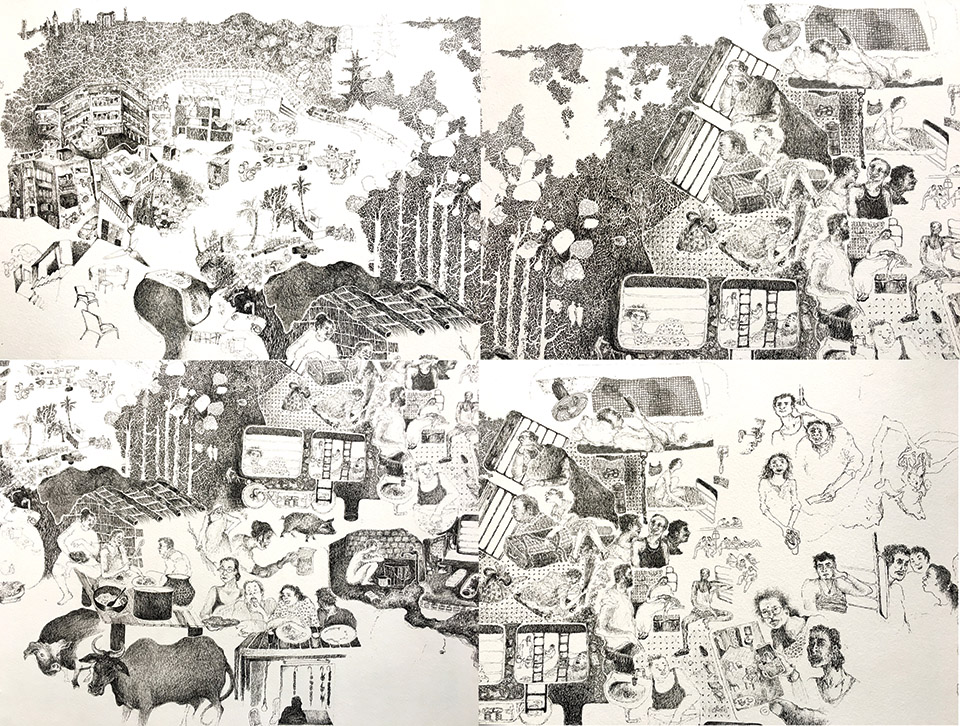
Parmita Mukherjee explores the scope of the line drawn; still images to reveal liminal spaces in our everyday lives that cannot be articulated in verbal languages. Project: Everyday and The Contemporary
Vision
To investigate into ideas about justice, environment and governance that shape people’s relationship to place and nature. The courses equip aspiring creative practitioners to critically engage with the ecological commons, natural and built heritage and sustainable economies. The aim is to leverage art and design to influence public policy and change individual and collective behavior.
At the Interdisciplinary Studies in Law, Environment and Planning, students learn to apply a trans-disciplinary approach, understanding various paradigms of environment and law, economy and livelihood, nature and culture, space and governance, city and region. This holistic knowledge takes into account geospatial perspectives in a real and virtual world, along with the highly personal, cognitive, social and experiential understanding of places.
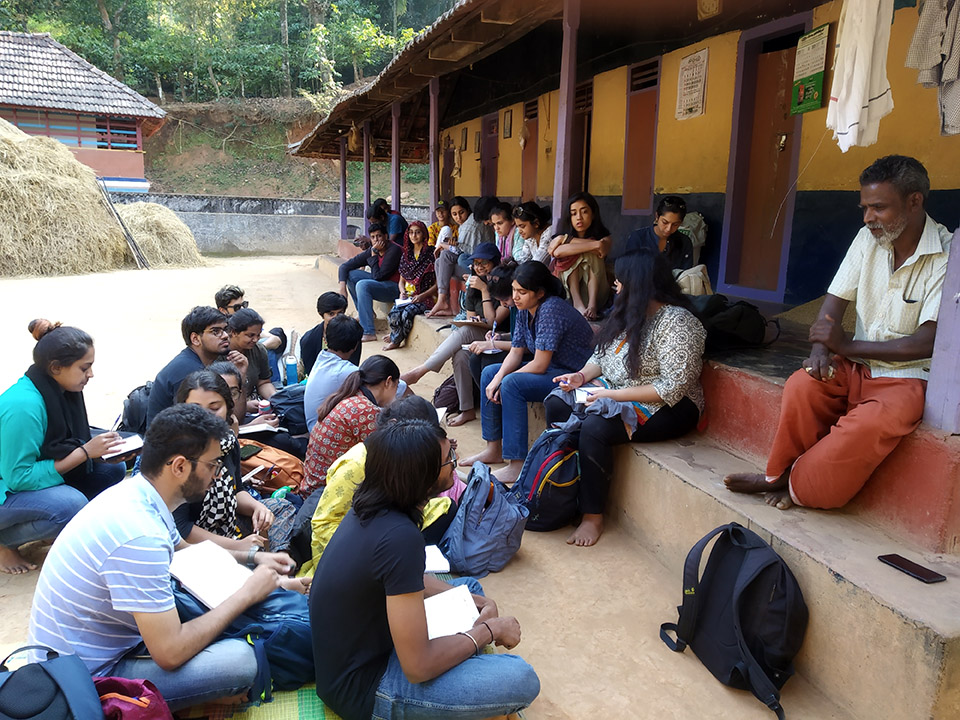
Collecting stories of natural disasters, Floods in Wyanad
Values
The values of social and ecological justice inform our ways of responsible stewardship of the cultural and natural resources of the world. Ethical and mindful engagement with people and place is a core pedagogical principle. Tangible and intangible heritage conservation of a place and local cultural relationships to the nature, guide our aspiration for a sustainable world.
In a future, which aims to connect everyone and everything in a seamless network, navigating and negotiating the world becomes a crucial skill. Students learn to apply a trans-disciplinary approach to inquire into areas of environment and law; economy and livelihood; nature and culture; space and design. Recognizing the changing perceptions of ‘local’, we question how ‘place’ is defined in a digital age. We see ourselves as a catalyst that encourages the investigation of this dynamic relationship between people, place and nature.
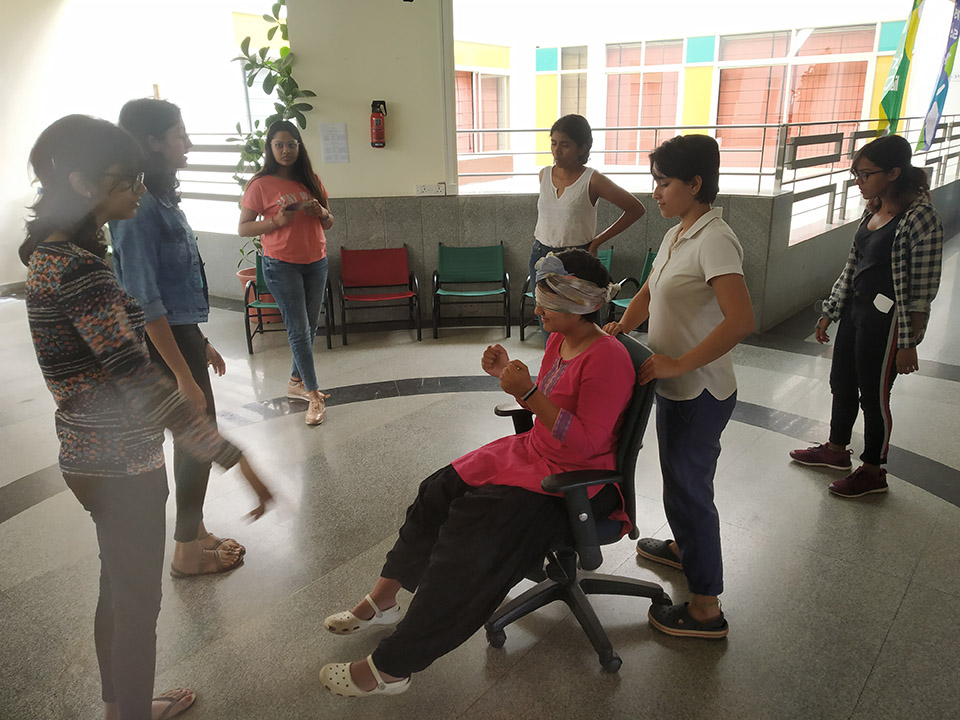
Students testing games designed to include differently abled people through role play
Domains
Law and Policy - Engagements to facilitate social change and empower communities, improve governance, access to law & justice systems and government services
Environment – Understand Policy and Impact with regard to developing sustainable practices, places and communities in the context of Sustainable Development Goals.
Planning Processes- That engage with and empower local communities to have a say in determining their future and managing their resources in what is otherwise an opaque top-down planning process.
Communities and Settlements - Understand community network, structures and settlement patterns both planned and unplanned in the context of their culture and history.
Heritage and Culture – Tangible and intangible, built and natural; with the intent of stewarding and using these knowledge systems, resources, and places for the benefit of the community. The UNESCO Chair in Culture, Habitat, and Sustainable Development is based out of the Interdisciplinary Studies in Law, Environment and Planning.
Ecological Literacy - To develop an ecological consciousness and to `facilitate a deeper understanding of the threats that impact our planet. Initiate action towards creating a more resilient future.
Urban Studies - With the intent of understanding and engaging with communities, and advocating on their behalf.
Land and Livelihood - Understanding the relationships between land, natural resources, space and livelihood, their impacts on liveability, community and places.
Critical Geography - To understand power systems, social justice and well-being and their impact on community, space and cultures.
Information and Data - To critically review and reinterpret data. Construct and present narratives ethically to communities.
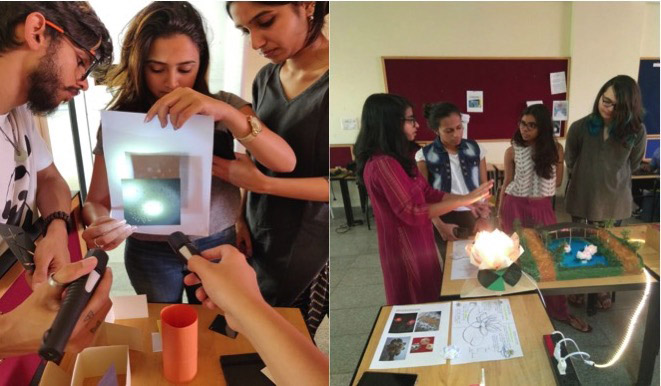
Experimenting and Prototyping in the Lighting Workshop
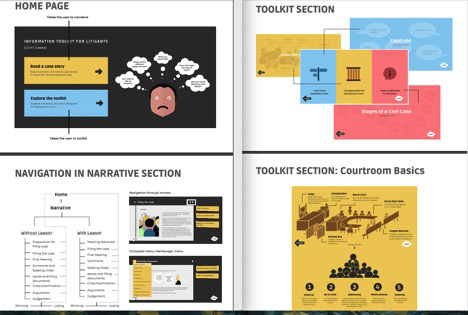
Photo: Screenshot of platform developed to navigate the court system (created by Rashika Goyal in partnership with the Vidhi Centre for Legal Policy)
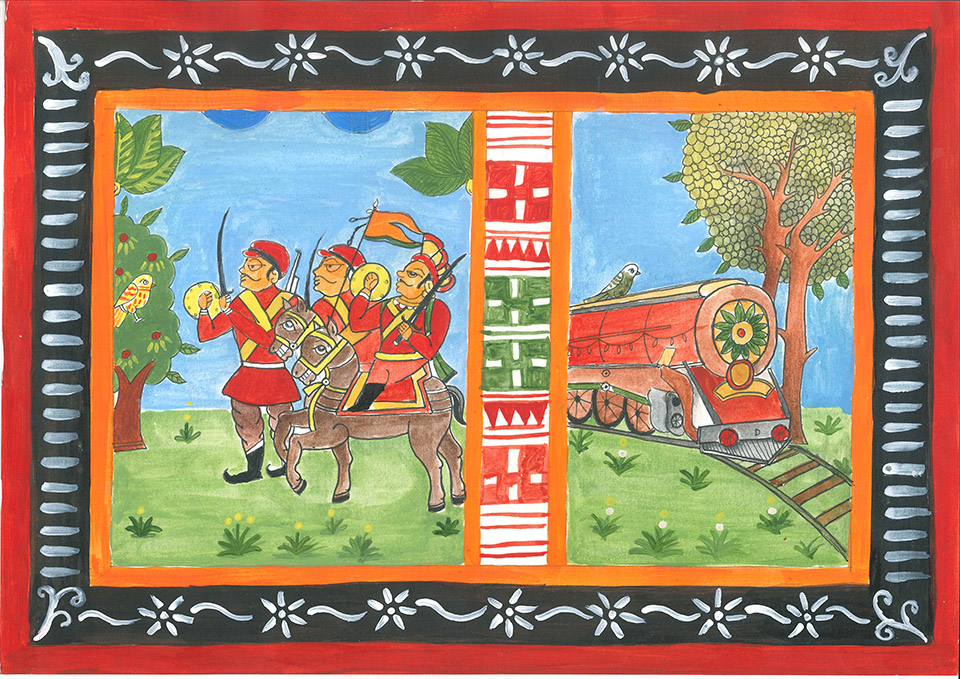
Using the Patchitra to communicate the history of the Commercial Street Area – Visualising Change, Interlude 2019
Programs and Courses
Undergraduate Skill-based Vocational Program (B.Voc)
Course
Undergraduate Professional Program in Design (B.Des)
Courses
Information Arts and Information Design Practices
Public Space Design
Postgraduate Professional Program in Design (M.Des)
Courses
Earth Education and Communication
Heritage Design
Information Arts and Information Design Practices
Public Space Design
